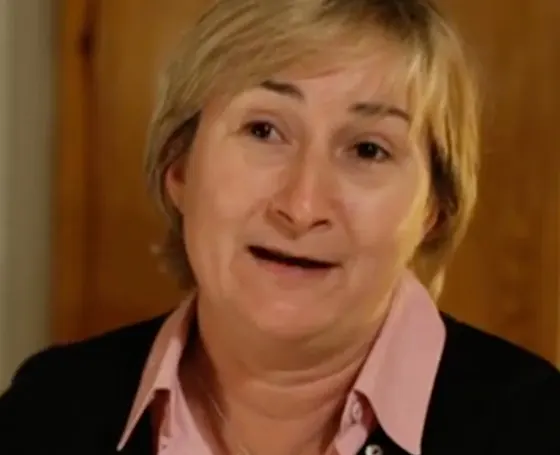Cardiac Surgery
"Our specialists are trained in international centers and we have extensive experience in performing cardiac surgical techniques".
DR. GREGORIO RÁBAGO JUAN-ARACIL DIRECTOR. CARDIAC SURGERY DEPARTMENT

The Cardiac Surgery Department of the Clinic is backed by its extensive experience, dating back to 1967. It is a pioneer in the introduction of the most complex procedures and state-of-the-art techniques.
The Clínica was the second Spanish center to perform a successful heart transplant (1984) and the first in a heart-lung transplant (1985); the first to perform a dynamic cardiomyoplasty and the second to use ventricular assist devices (1987). In 2016, a patient at the Clinic received the first total artificial heart to be implanted in Spain.
Our surgeons are specialists trained in international centers of reference, who combine the application of the latest techniques with the personalized treatment of our patients.
We also have a team of highly specialized nurses, both in surgical and clinical aspects.

High complexity cardiac surgery
IN NAVARRE

Coronary surgery
The Clínica Universidad de Navarra performs the 'all arterial' coronary bypass technique (only arterial grafts with two internal mammary arteries) in more than 95% of its patients.
This technique significantly improves the results of coronary surgery with respect to interventions in which venous grafts are used and avoids a second incision in the leg, with the possible complications that this entails in diabetic patients.
Coronary surgery requires expert, dedicated teams and advanced technology.

Valve surgery
The prevalence of degenerative diseases and longevity have made aortic valve stenosis the second leading cardiac pathology. We are at the forefront of its diagnosis and treatment.
Most valve surgeries repair or replace the mitral or aortic valve.
During the operation, a heart-lung bypass machine is used to perform the functions of the heart and lung, oxygenate the blood and allow surgeons to stop the heart and work inside it.

Thoracic aortic surgery
The main pathologies of the aorta are aneurysms and dissections. These are alterations that can be seen in a routine chest X-ray, but the most effective diagnostic test is the CAT scan or magnetic resonance imaging (MRI).
Echocardiography is used to assess aortic valve function and to study the diameter of the ascending aorta.
Currently, the only treatment for ascending aortic aneurysms is to replace the dilated part with a synthetic tissue (Dacron®). This is performed by conventional surgery.

Atrial fibrillation surgery
The Clínica Universidad de Navarra has the resources and experience necessary to perform surgery for atrial fibrillation without the use of the heart-lung machine, thus reducing operating time and surgical complications.
We also perform the HeartPort technique, which allows access to the heart through small lateral incisions instead of the anterior sternotomy (in which it is necessary to open the thorax through the sternum), which allows a quick recovery and avoids less esthetic scars.

Heart failure surgery
Heart failure, one of the most common heart diseases, is the inability of the heart to pump blood well. In order to solve it effectively, we started the mechanical cardiac assistance program in 1992.
The Clinic has a highly experienced multidisciplinary team, composed of cardiac surgeons, anesthesiologists, hematologists, infectologists and a team of nurses highly specialized in the handling of these devices, who in a coordinated manner monitor these patients on a daily basis until they are discharged.
The team's experience and its high technology culminated in 2016 with the first total artificial heart transplant performed in Spain.

Cardiac transplantation
Indicated for patients with terminal heart failure, the Clínica Universidad de Navarra performed the second successful heart transplant in Spain on July 6, 1984.
Our heart transplant program has more than 25 years of experience with very encouraging results, since in the last 10 years it has shown a survival rate of 87%; at 5 years, 70%; and at 10 years, 60%.
Our hospital stays have decreased notably and are now between 7 and 10 days, with the consequent reduction in costs and postoperative complications. It should be borne in mind that if these patients had not been transplanted, 90% would have died within the first year.
Do you need to request a consultation with one of our specialists?
PERSONALIZED TREATMENT
Pioneering techniques
We have extensive experience in the most common and innovative cardiac surgery techniques.

Specialized nursing
The high survival rate of patients undergoing heart and coronary surgery at the Clinic also has a lot to do with the high level of specialization of its nursing team.

Cutting-edge technology
Operating rooms equipped with the latest technology to be able to perform all types of interventions with the highest quality and safety conditions.

Work
teamwork
We are part of the multidisciplinary areas of the Clinic in order to offer the best surgical alternative, at the most appropriate time for the patient's recovery.

Why in Navarre?
- State-of-the-art therapeutic technology.
- Expert professionals who are an international reference.
- Safe surgeries for the prompt recovery of our patients.
Our team of professionals
We help our patients overcome their stories
Your testimonials encourage us to continue improving our services.






